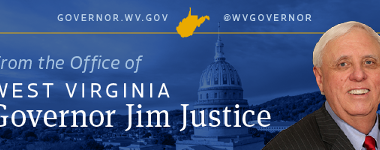MORGANTOWN, W.Va. — In January, a chemical leak in the Elk River polluted the drinking supply of more than 300,000 West Virginians, forcing them to buy bottled water and forego showers and washing dishes for up to two weeks. Nine months later, outrage over that disaster seems to have faded from the public discourse surrounding the heated senate race between Secretary of State Natalie Tennant (D) and U.S. Representative Shelley Moore Capito (R).
“She is trapped by what’s developed as the dominant culture of the state, which is somehow, ‘government hurts you,’” says Jeffrey Worsham, a political science professor at West Virginia University.
David Humphreys, a civil engineer in Huntington who worked to coordinate and carry out recovery efforts following the Elk River leak, agrees. He says that politicians who attempt to regulate any kind of industry in West Virginia are automatically pegged as “anti-business.”
“Nobody’s going to say, ‘Well, you know, we should have regulated this,’ because that reeks of Obama’s EPA coming after our jobs,” Humphreys said.
It all comes back to a culture that for decades has glorified coal and scorned anyone who tried to regulate the industry. The chemical that leaked into the Elk River from a Freedom Industries storage tank was used in coal-cleaning processes.
“Part of the reason that the industry regulations are so lax is because of the coal industry and the chemical industry,” says Karan Ireland, development director of Citizens Actively Protecting the Environment. “They have powerful lobbying forces.”
Even though the decline in coal jobs in the state has more to do with market competition from cheaper natural gas as well as a depleted supply of cheap coal, the coal industry has done a masterful job of pinning the blame on the Obama administration. In 2012, coal companies poured millions of dollars into an advertising campaign that criticized Obama for a “war on coal.” During the 2012 Presidential campaign, energy companies poured $153 million into pro-fossil fuel advertisements that ran nationwide, according to The New York Times.
The resulting perception — that President Obama is taking coal jobs away from West Virginia — appears to be taking precedence over concerns about water quality in the state.
Indeed, both candidates in the Senate race have vowed to fight the Obama administration’s recent efforts to cap carbon emissions from coal-powered plants. On her website, Capito says: “West Virginia coal jobs are under attack by President Obama and the EPA. In the Senate, I’ll stand up for jobs in our state.”
Tennant’s website says much the same: “I will fight President Obama, the Environmental Protection Agency (EPA) and anyone else who tries to undermine the West Virginia coal jobs.”
“Tennant can’t really say anything negative about the coal industry, because it’s just the [state’s] culture,” says Robin Winegard, a registered voter in Kanawha County. Even so, Winegard is going to vote for Tennant because she believes the secretary of state would be more likely to protect the water supply in West Virginia.
“Republicans tend to favor less regulation because they think it tampers with business and job creation. Democrats tend to believe that regulations benefit the community and environment as a whole,” Winegard says.
Capito’s track record in the House of Representatives echoes that laissez faire stance. While serving in the House for the last 13 years, Capito worked to weaken federal oversight of water safety and management. In July, Capito served as a co-sponsor for the Waters of the United States Regulatory Overreach Protection Act of 2014, with the main purpose of the act to limit the EPA’s powers to regulate water pollution within the Clean Water Act. House Bill 5078 passed in September; however, according to govtrack.us, the bill has an approximate 40 percent chance of being enacted.
During the Senate campaign this fall, both Capito and Tennant have largely avoided discussing the chemical leak. Yet despite the lack of attention the candidates have given the issue, a poll recently conducted by Citizens Actively Protecting the Environment found that West Virginia residents affected by the chemical spill still care about the issue, Ireland says.
Kanawha County resident Jeremy Hensley was working at three different eateries in Charleston at the time the disaster occurred. The spill forced these restaurants to close and left him without work for a week.
“I had no income coming in,” Hensley said. “And I was never able to get reimbursed because you can’t get reimbursed for tips.”
Hensley says he still isn’t sure who he is going to vote for on Nov. 4.
“I’d like to sit down and ask [the candidates], ‘What steps are you going to take to prevent this from happening again?’” he says.




